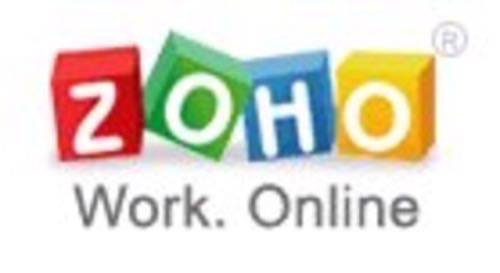Last week, we covered how Zoho is defying conventional wisdom in the Web Office market. But is being unconventional all it takes for a bootstrapped start-up to take on both Microsoft and Google, in head to head evaluations by giant enterprises such as GE? Far from it. Whenever you see a surprising ‘overnight sensation’, you will usually find years of hard work and careful execution.

In Part 2 of this story, we reveal some of Zoho’s cookbook.
Jason Fried’s Advice – Follow the Chefs
At the Web 2.0 Expo in New York last week, Jason Fried of 37 Signals, another company that has done well by defying conventional wisdom, advised entrepreneurs to “follow the chefs”. He meant that great Chefs give away their recipes. That just makes you want to come to their restaurants even more. Particularly if the recipe looks complex. And Zoho’s looks complex.
So I hope they won’t mind me giving out the recipe they revealed when I met with Raju Vegesna, one of their founders, last week. I noted 3 major ingredients:
1. New ways of competing for talent
2. A related cash cow business
3. Pragmatic, non dogmatic approach to winning business
New Ways of Competing for Talent
If I had to select one “secret sauce” in Zoho’s recipe, it would be how they recruit. Zoho (with parent company, Adventnet) has 700 developers. All the developers are in India, specifically Chennai.
India is a ridiculously competitive market for developer talent currently. I see parallels with Silicon Valley in 1999, when average developers got inflated expectations and inflated paychecks. Attrition is problem # 1.
Developers see their career path as managing other developers. Your mojo is based on how many people you manage. Managing 1,000 makes you ten times better than managing 100 and so on. This is the reverse of America where a developer will drop custom service work as soon as it is possible to work on a product.
This is a terrible environment for a product company to compete for talent. How does Zoho compete for talent in this market?
1. Hire from school. Yes, school, not college. So they don’t compete to hire from final year of College or in the even more hot market of developers with a few years experience. Great code is typically written by young people – which explains a lot of the “college drop out makes $ billions” stories in America.
2. Pay one year of college fees. This is a salary, not a loan, with no strings attached. According to Raju, 90% join Zoho at the end of that year, but there is no obligation. This gives Zoho an edge with the brightest at school as they have an unusual offer.
Zoho’s philosophy is that 4 years college when you are young is not right for many people. Better to have life-long learning but get real world experience early and get some cash while you are at it. This gets a big “yes” from parents paying college fees!
Zoho have their own Zoho University. This is not uncommon for big employers in India. It is a necessary complement to hiring early.
Related cash cow
Zoho has a related cash cow business that enable them to fund Zoho. This is not unlike Google. Microsoft’s problem is that their cash cow – Office – is the one that both Google and Zoho are going after. That gives them one nasty Innovator’s Dilemma.
Zoho’s initial cash cow business is selling network management tools. This has been profitable for 12 years. Zoho itself is due to be profitable next year.
The network management tools business is doing the same as Zoho – products at least as good as the competition for a fraction of the price. This business also gives Zoho a capability for running large data centers, which is a core competency for a SaaS business.
Pragmatic, Non Dogmatic Approach to Winning Business
By all accounts, Zoho won GE’s business in head to head competition with Google. GE wanted to cut cost and enable collaboration, which meant Microsoft was less of a contender. Google was the obvious “you never got fired for choosing” winner. Why did GE choose Zoho? There are two likely reasons:
1. Zoho allowed GE to run the software in their own data centers. GE has the economies of scale to run their own data centers and clearly prize the control that this enables. Zoho specified the hardware, but GE bought it and deployed it. Is a “Zoho Appliance” far behind?
2. Visual Basic Scripts in Spreadsheets. Current tech orthodoxy frowns on VB, but if you have thousands of existing Excel spreadsheets running VB that would be a show-stopper.

















